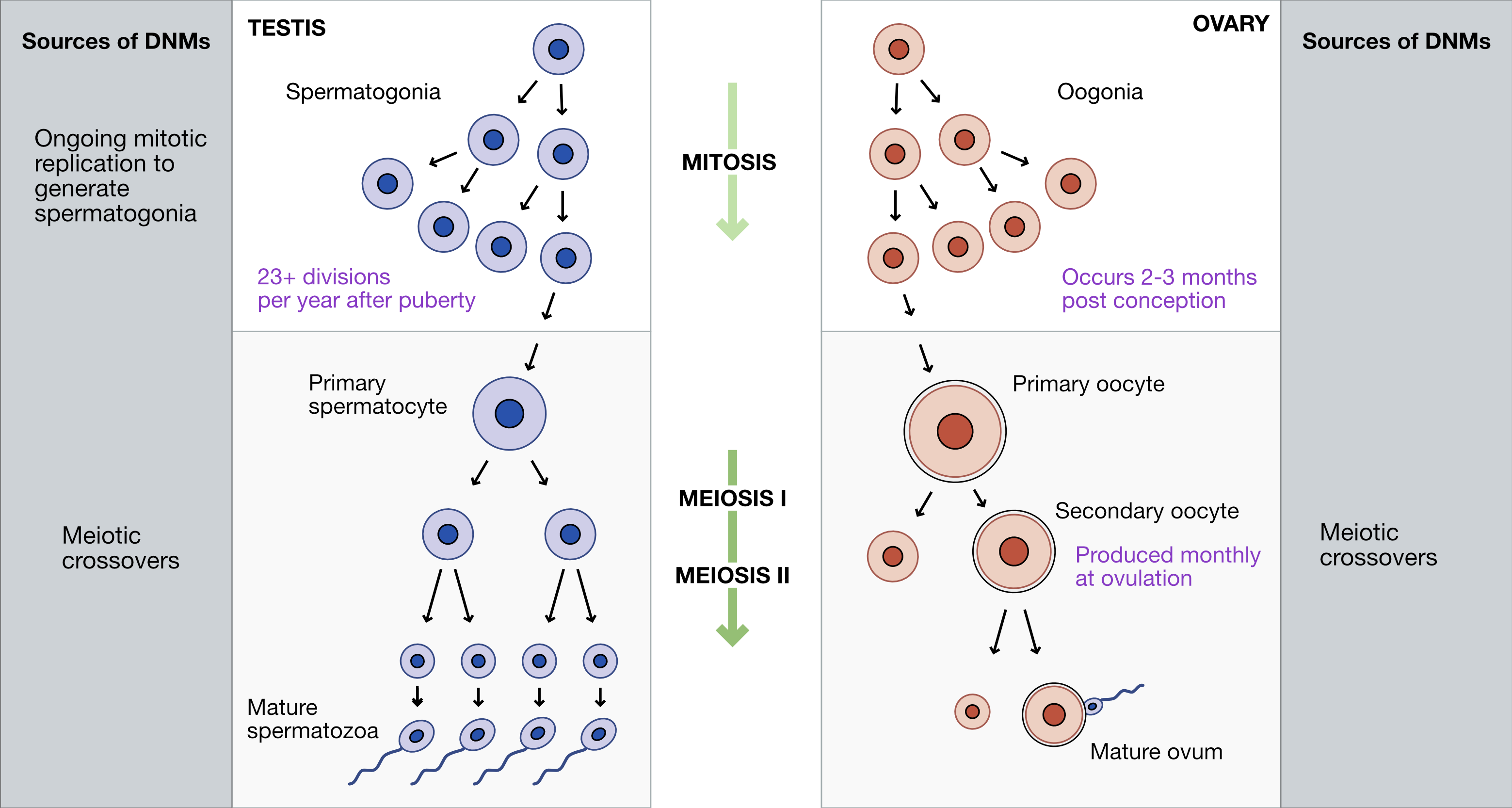3.1 De novo mutations
Mutation and recombination are two biological processes that generate genetic variation. When these phenomena occur during gametogenesis, the changes that they make to DNA are passed down to the next generation through germline cells (i.e., sperm and oocyte).
De novo mutations (DNMs) arise from errors in DNA replication or repair. These mutations can be single-nucleotide polymorphisms (SNPs) or insertions and deletions of DNA. Every individual typically carries around 70 de novo SNPs that were not present in either of their parents.

Fig. 1. Sources of DNMs in gametogenesis.